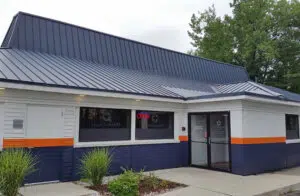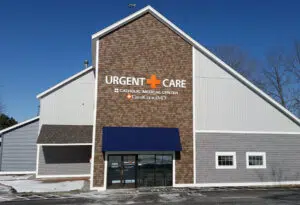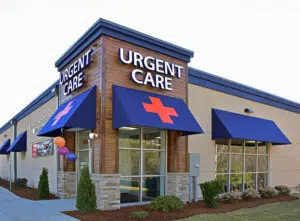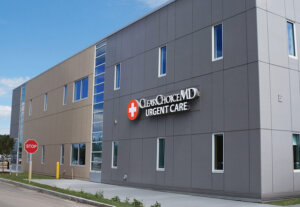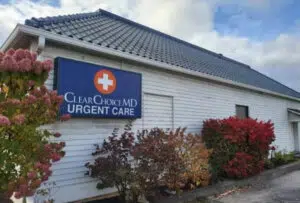Urgent Care For Stomach Flu And Digestive Illness
Same-Day Care for Sudden Digestive Symptoms
Stomach flu can cause sudden nausea, stomach discomfort, and rapid onset digestive symptoms. At ClearChoiceMD, we offer same-day evaluation and treatment through our convenient walk-in urgent care. Whether you’re looking for urgent care for nausea, stomach pain, or treatment for a flu-like illness, we’re here to provide fast support.
Save Your Spot or Walk In Today
What Is the Stomach Flu (Viral Gastroenteritis)?
Stomach flu – clinically known as viral gastroenteritis – is an infection causing inflammation in the lining of the stomach and intestines. The condition is a viral infection, and symptoms can include nausea, vomiting, diarrhea, stomach cramps, and fever. It is highly infectious and can quickly spread through contact with sick individuals or contaminated surfaces.
The stomach flu typically spreads through respiratory droplets, shared food, or contaminated surfaces, making close-contact environments particularly vulnerable. Viral strains such as norovirus or rotavirus are the most common causes and often move quickly through households, schools, and workplaces. Unlike bacterial infections, viral gastroenteritis cannot be treated with antibiotics and usually improves with rest, hydration, and symptom management.
- Contagious period: From the first signs of illness until at least 48 hours after recovery
- Common causes: Norovirus, rotavirus, contaminated food
Common Symptoms and Warning Signs
Symptoms can vary widely, ranging from mild digestive discomfort to severe episodes that interfere with normal activities. Patients should monitor hydration, fever, and ongoing abdominal pain that does not improve. Early recognition may help prevent complications and guide patients toward the right level of care.
Common signs include:
- Vomiting and diarrhea
- Stomach cramps
- Dehydration symptoms such as dizziness, dry mouth, or low urine output
- Fever or chills
- Abdominal pain that persists or worsens
When Stomach Flu Symptoms Need Urgent Care
If you're experiencing stomach pain or digestive troubles, don't hesitate to come to ClearChoiceMD Urgent Care. Our team has extensive experience effectively addressing these issues and providing the necessary treatment.
Patients can rely on us when facing persistent discomfort or symptoms that appear suddenly and worsen quickly. Same-day evaluation helps rule out complications while providing relief for nausea, digestive irritation, and dehydration risk.
Visiting urgent care for abdominal pain can provide immediate relief and expert care. Seek urgent care if:
- Symptoms last longer than 48 hours
- Signs of dehydration arise
- Pain intensity interferes with daily function
Diagnosing Stomach Flu and Digestive Issues
Diagnosis begins with a provider review of symptoms, medical history, and a focused physical exam. We identify signs that distinguish a stomach virus from other causes of stomach discomfort, including foodborne illness or bacterial infections. Our centers offer urgent care testing with on-site lab availability for fast evaluation and clearer answers.
If needed, your provider may request stool studies, viral testing, or blood work. Additional imaging such as X-rays and imaging may be used when pain or complications require further evaluation.
Treatment Options at ClearChoiceMD
Millions of people suffer from diarrhea each year. Our urgent care for stomach flu services delivers fast diagnosis and treatment to address the underlying causes of this common digestive issue. Our team is here to provide you with support and treatment options that aim to mitigate symptoms and improve your overall gastrointestinal health.
Treatment focuses on hydration, nausea control, electrolyte balance, and safe at-home recovery. Providers may prescribe medication for symptom relief, provide guidance on fluid intake, or recommend dietary adjustments. Our team also supports older adults and high-risk patients who may become dehydrated more quickly as well as pediatric urgent care support for addressing stomach flu in children.
Care may include:
- Hydration strategies
- Anti-nausea medications
- Rest and digestive recovery
- Temporary diet adjustments
Preventing the Spread of Digestive Infections
Prevention starts with strong hygiene habits, especially in shared spaces. Frequent handwashing, surface disinfection, and isolation while sick can significantly reduce spread. Viral particles are highly resilient and can survive on surfaces for extended periods, making prompt cleaning essential.
- Stay home until fully recovered
- Wash hands regularly
- Stay hydrated throughout illness
When to Go to the ER for Severe Symptoms
In rare cases, stomach flu can escalate into complications that require emergency medical attention. Severe dehydration, persistent fever, fainting, sudden confusion, or blood in vomit or stool are signs that immediate ER evaluation is needed.
Stomach Flu Care FAQs
How long does stomach flu last in adults?
Most cases last one to three days, though symptoms including fatigue can continue longer.
How to differentiate between stomach flu and food poisoning?
Food poisoning often appears quickly after eating contaminated food, while viral gastroenteritis spreads person to person.
What over-the-counter medications help with stomach flu?
Anti-nausea medications, hydration solutions, and fever reducers may help, but always speak to a provider first.
What are the first signs of stomach flu?
Early signs include nausea, sudden stomach discomfort, and mild fever before vomiting or diarrhea begins.
Is stomach flu contagious before symptoms appear?
Yes, many viruses spread before noticeable symptoms begin.
How to stay hydrated during stomach flu?
Take small sips of electrolyte drinks, broth, or water frequently to replenish fluids.
Get Fast Relief for Digestive Symptoms Today
ClearChoiceMD provides fast, compassionate care for all ages experiencing digestive discomfort or stomach flu symptoms. You can schedule virtual urgent care or visit one of our urgent care centers near you for same-day support through convenient walk-in urgent care.




